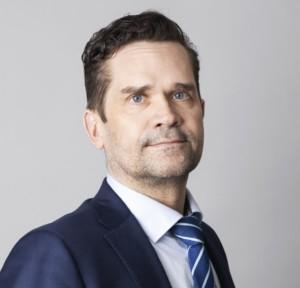Dissimilar historical experiences have led Estonia and Finland to practice different foreign policies. Whereas Finland remains outside NATO and maintains a pragmatic approach in dealing with Russia, Estonia relies on NATO membership and frequently warns its fellow Europeans of Russia’s ambitions. But are Finland and Estonia that different after all? Are the growing uncertainty in the Euro-Atlantic region and increasing great power competition drawing them closer? The event brings together Finnish and Estonian national security experts to discuss the state of European security and the foreign policy agendas of the two countries. The aim of the session is to identify common dynamics and divergences regarding Finland’s and Estonia’s strategic cultures and to foster mutual understanding on European and regional security issues on both sides of the Gulf of Finland.
Puhujat
Timo Kantola has served as the Ambassador of Finland to Estonia since September 2018. He previously served as the Deputy Director General of the political department at the Ministry for Foreign Affairs of Finland. Prior to that, from July 2010 to August 2013 he served as Ambassador of Finland to the OSCE in Vienna. He has also served as the Security Policy Director at the MFA, and his earlier career includes assignments in Brussels (EU/Political and Security Committee), Ankara Turkey, Geneva (disarmament and non-proliferation), and Vienna (OSCE ). He joined the foreign service of Finland in 1988. During Finland´s EU Presidency in 1999 he chaired the EU CFSP working group on global disarmament, and during the 2006 Presidency he chaired the Politico-Military Group of the EU.
Kristi Raik is the Director of the Estonian Foreign Policy Institute at the International Centre for Defence and Security since 1 February 2018. She is also an Adjunct Professor at the University of Turku. Kristi has previously served, inter alia, as a Senior Research Fellow and Acting Programme Director at FIIA; as an official at the General Secretariat of the Council of the European Union in Brussels; and as a Visiting Fellow at the Centre for European Policy Studies in Brussels and the International Centre for Policy Studies in Kyiv. Kristi has a PhD from the University of Turku. She has published, lectured and commented widely on European foreign and security policy.
Tuomas Forsberg is the Director of the Helsinki Collegium for Advanced Studies. He is on a leave of absence from University of Tampere where he is professor of International Relations. He gained his MA from University of Helsinki in 1989 and his PhD from the University of Wales, Aberystwyth in 1998. He has worked as the acting director (1998-2001) and senior research fellow at FIIA, as Professor of Western European Security Studies at the George C. Marshall European Center for Security Studies, Garmisch-Partenkirchen, Germany (2002-04) and as Professor of International Relations at the University of Helsinki (2004-2008) before moving to the University of Tampere where he has been Professor of International Relations since 2008.
Sven Sakkov is the Director of International Centre for Defence and Security in (Tallinn). Before joining ICDS Sven Sakkov served for 2 years as the director of NATO Cooperative Cyber Defence Centre of Excellence (NATO CCDCOOE), an international knowledge hub specialising in research, training and exercises in the areas of technology, strategy, operations and law. Between 2008 and 2015 Sakkov served as an undersecretary for defence policy (policy director) of the Ministry of Defence of Estonia. During his tenure as a policy director Sven Sakkov was responsible for policy planning, threat assessments, NATO and EU policy, international cooperation and arms control. He was an Estonian representative to the NATO’s Senior Officials’ Group and High Level Group.
Harri Mikkola works as a Senior Research Fellow at FIIA. He received his PhD in Political Science from the University of Tampere in 2013. His fields of expertise include the Arctic region, defence and security policy, hybrid influencing, societal resilience, security of supply as well as defence market issues. Prior to joining FIIA in 2011, Mikkola worked as a Researcher at the Finnish Defence Command, at the University of Tampere, and as a Visiting Researcher at the University of Minnesota.
Panelistit
Matti Pesu is a Research Fellow at the Finnish Institute of International Affairs (FIIA), where he works in the European Union research programme. His research interests include Finnish foreign, security and defence policy and Euroatlantic security. Pesu received his PhD from the University of Tampere.
Puheenjohtaja

Mika Aaltola on Ulkopoliittisen instituutin johtaja. Hän on myös Tampereen yliopiston dosentti. Aiemmin Aaltola on toiminut vierailevana tutkijana Cambridgen, Sciences Po’n ja Johns Hopkinsin yliopistoissa sekä vierailevana professorina Minnesotan yliopistossa ja Tallinnan yliopistossa. Hänen asiantuntemukseensa kuuluvat USA:n globaali rooli, demokratian haavoittuvuus, suurvaltapolitiikan dynamiikat, pandemiaan liittyvä turvallisuus ja Suomen ulkopolitiikka.
Aaltolan julkaisut ovat käsitelleet Suomen ulkopolitiikkaa (Tampere University Press, 2003), USA:n ulko- ja turvallisuuspolitiikan kulttuurista perustaa (Brill, 2008), etiikkaa ja humanitaarisuutta geopoliittisina käytäntöinä (2008, Palgrave), pandemiaan liittyvää turvallisuuspolitiikkaa (Routledge 2012) ja USA:n globaalin infrastruktuurin valtapolitiikkaa (Palgrave 2014, Routledge 2016, co-authored). Aaltolan julkaisemat monografiat ovat tarkastelleet Suomen ulkopolitiikkaa Krimin jälkeen (Docendo 2019) ja demokraattista haavoittuvaisuutta ja vaaleihin sekaantumista (Palgrave-Macmillan, 2021). Näiden lisäksi hän on toimittanut yhdessä Mikael Wigellin and Sören Scholvinin kanssa teoksen Geo-economics and Power Politics in the 21st Century: The Revival of Economic Statecraft (Routledge, 2018).
Aaltola väitteli tohtoriksi Tampereen yliopistosta 1999 (“The Rhythm, Exception, and Rule in International Relations: The Case of Mad Cow Disease”). Maisterintutkintonsa hän suoritti Tampereen yliopistossa (1994) ja kanditutkintonsa Columbian yliopistossa (1992).
